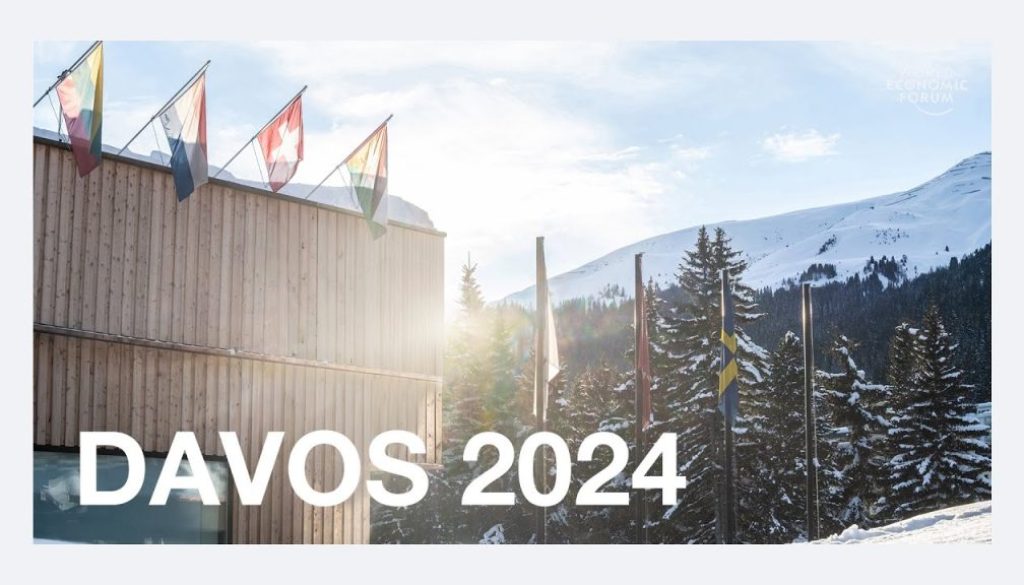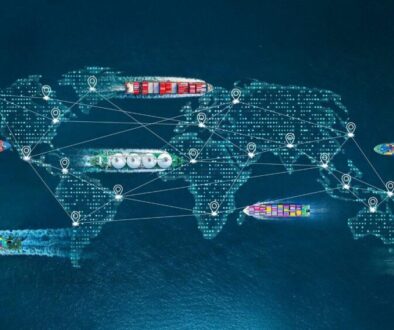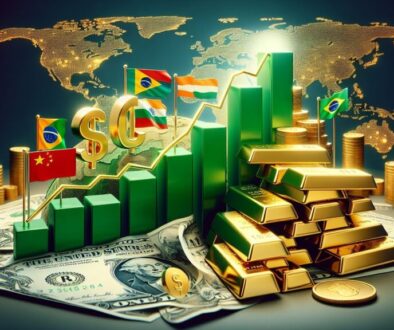Davos – Annual Meeting 2024: Rebuilding Trust amid Uncertainty
Overview
The 54th Annual Meeting of the World Economic Forum (WEF) brought together a diverse group of global leaders to address pressing issues and explore solutions for a range of challenges facing the world. The meeting took place amid rising geopolitical tensions, prompting discussions on rebuilding trust, fostering cooperation, and enhancing security.
Key Themes and Statements:
Rebuilding Trust and Global Cooperation:
- Klaus Schwab, Founder and Executive Chairman of the WEF, emphasized the need to rebuild trust in the future, our ability to overcome challenges, and most importantly, in each other.
- World leaders, including UN Secretary-General António Guterres, highlighted the importance of overcoming geopolitical divides to find global solutions for shared challenges.
Geopolitical Challenges:
- Leaders such as Li Qiang, Premier of China, and Ursula von der Leyen, President of the European Commission, urged deeper global collaboration to address the multi-inflection points the world is facing.
- French President Emmanuel Macron called for realistic yet optimistic approaches to addressing challenges related to peace, security, jobs, and decarburization.
Peace Initiatives:
- Ukrainian President Volodymyr Zelenskyy announced plans for a potential global summit to push for peace and renewed investment in Ukraine.
- Various leaders addressed the conflict in the Middle East, emphasizing the need for ceasefires, humanitarian support, and dialogue to end ongoing wars.
Economic Growth and Trade:
- Leaders stressed the need for a new growth model that balances economic drivers with innovation, inclusion, sustainability, and resilience.
- Discussions focused on addressing challenges such as climate transition, aging societies, and the impact of artificial intelligence on economies.
Climate, Nature, and Energy:
- Participants discussed driving energy efficiencies, addressing energy demand, and protecting/restoring nature.
- Initiatives included the Global Foresight Network, the First Movers Coalition for Industry and Food, and efforts to accelerate clean energy investment in the Global South.
Artificial Intelligence and Emerging Technologies:
- Discussions highlighted the need for responsible and inclusive practices in the deployment of AI and emerging technologies.
- Initiatives included the AI Governance Alliance, new centers for the Fourth Industrial Revolution, and efforts to advance digital literacy and accessibility.
People, Equity, and Human Development:
- Emphasis was placed on investing in people, equitable opportunities, and addressing challenges related to jobs, skills, and healthcare.
- Initiatives such as the Reskilling Revolution, Refugee Employment Alliance, and efforts to achieve gender parity and diversity were announced.
Recognition and Awards:
- The meeting acknowledged the winners of the Social Innovation Awards 2024 and the 30th Annual Crystal Awardees.
- The Young Global Leaders community marked its 20th anniversary.
These themes and initiatives reflect the diverse range of challenges and opportunities discussed during the Annual Meeting, emphasizing the need for global collaboration and innovative solutions to address the complex issues facing the world.
Over 60 heads of state attended Davos 2024. Here’s part of what some had to say
António Guterres, Secretary-General of the United Nations
In a special address, António Guterres, Secretary-General of the United Nations, called on countries to put aside differences and come together to deal with shared challenges. In particular, Guterres called for action to combat the climate crisis and advance the clean energy transition.
“Geopolitical divides are preventing us from coming together around global solutions for global challenges.”
Guterres added that while rebuilding trust will not happen overnight, it is “both essential, and possible.”
Antony Blinken, Secretary of State of the United States
US Secretary of State Anthony Blinken sat down with Thomas Friedman of The New York Times for wide-ranging conversation on today’s most challenging foreign policy issues. The topics of discussion included the war in Ukraine, the escalation of conflict in the Middle East and shipping disruptions in the Red Sea, to name a few.
“I can’t think of a time when there’s been both a greater multiplicity and greater complexity of the challenges that we’re dealing with,” Blinken said.
Ursula von der Leyen, President of the European Commission
Ursula von der Leyen, President of the European Commission, urged countries around the world to collaborate and rebuild trust amidst an array of global challenges ranging from the climate crisis to polarization within societies.
“The world is not at a single inflection point. It is at multi inflection points.”
Von der Leyen also discussed efforts to advance Europe’s energy independence. “Europe has made real progress in improving the resilience of its energy systems,” after Russia’s invasion of Ukraine, she said
Li Qiang, Premier of the People’s Republic of China
Li Qiang, Premier of the People’s Republic of China, delivered the first special address of the Annual Meeting 2024.
Li called for the rebuilding of trust between countries and touted China’s economy, stressing its integral position in the global economy. “The Chinese economy is making steady progress, and will continue to provide a strong impetus for the world economy,” Li stated.
Emmanuel Macron, President of France
French President Emmanuel Macron discussed economic growth in France and advances in European integration. Moreover, Macron detailed the technological prowess of France and discussed efforts to foster innovation around advanced technologies like AI.
Macron also outlined France’s position on the ongoing conflicts in Ukraine and in the Middle East
Sheikh Mohammed bin Abdulrahman Al-Thani, Prime Minister and Minister of Foreign Affairs of Qatar
Qatari Prime Minister Sheikh Mohammed bin Abdulrahman Al-Thani spoke with World Economic Forum President Børge Brende on 16 January.
Sheikh Mohammed discussed the current conflict in the Middle East and the precarious state of shipping security in the Red Sea. “Protecting the freedom of navigation is a global issue,” he said.
Mohammed Shyaa Al Sudani, Prime Minister of Iraq
Iraqi Prime Minister Shyaa Al Sudani spoke with John Harris, the Founding Editor of Politico, about the political and security situation in Iraq as well as the country’s transition away from an oil-based economy. He also reflected on how Iraq must delicately balance its relationships with other regional and global powers.
“There is a transition to diversification … we are reducing the reliance on oil revenue.”
Moreover, Al Sudani spoke about the ongoing conflict in and Gaza, and the rising tensions across the Middle East.
Bisher Hani Al Khasawneh, Prime Minister of Jordan
Bisher Hani Al Khasawneh, Prime Minister of the Hashemite Kingdom of Jordan, spoke in coversation with Daniel Kurtz-Phelan, the editor-in-chief of Foreign Affairs. Al Khasawneh spoke about the ongoing conflict in the Middle East and the potential for an escalation of violence and displacement of people.
“The longer [this conflict] lasts, the more prospects we have that endanger regional peace, security and stability,” he said.
Mohammad Mustafa, Chairman of the Palestine Investment Fund
Mohammad Mustafa, Chairman of the Palestine Investment Fund, spoke with World Economic Forum President Børge Brende about the conflict in Gaza. Mustafa demanded more humanitarian aid be allowed into the territory and called for a political solution to the conflict.
Jake Sullivan, National Security Advisor of the United States
US National Security Advisor Jake Sullivan delivered a special address outlining the United States’ position on the most pressing global issues ranging from shipping disruptions in the Red Sea to US competition with China. The world, he said, is in an era of “strategic competition in an age of interdependence.”
“Everyone who serves in positions of responsibility, foreign policy and national security likes to say that their time in the seat is the most complex and difficult of any time in recent history. But in our case, it’s actually true.”
Sullivan noted that “major powers are vastly more interdependent than at any time during the Cold War,” adding that powerful countries are “also in stiff competition about the type of world we want to build. This age is one of disruptive change.”
Other heads of state and government in Davos included:
Han Duck-soo, Prime Minister of the Republic of Korea; Viola Amherd, President of the Swiss Confederation; Alexander De Croo, Prime Minister of Belgium; Gustavo Francisco Petro Urrego, President of Colombia; Leo Varadkar, Taoiseach of Ireland; Najib Mikati, President of the Council of Ministers of Lebanon; Oyun-Erdene Luvsannamsrai, Prime Minister of Mongolia; Mark Rutte, Prime Minister of the Netherlands; Paul Kagame, President of Rwanda; Bola Ahmed Tinubu, President of Nigeria; Andrzej Duda, President of Poland; Aleksandar Vučić, President of Serbia; Tharman Shanmugaratnam, President of Singapore; Nana Akufo-Addo, President of Ghana; Ranil Wickremesinghe, President of Sri Lanka; and Srettha Thavisin, Prime Minister of Thailand; among others.



